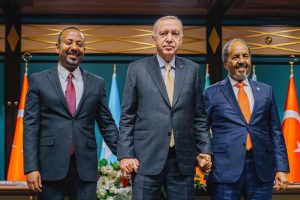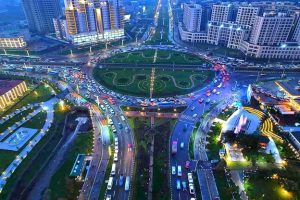
The right to move from place to place is one of the many human rights that a person enjoys. On many occasions, people exercise their right by moving from place to place. Such moves might have different reasons. Some are from personal interests like recreational purposes. On the other hand, some movements happen from various pushing factors which force people to flee from their home land and seek shelter or asylum in other places as refugees.
Natural disasters and conflicts between and within nations are some of the many factors that force people to leave their countries. In this regard, the refugee crisis has become the major headache for many nations. The crisis is also disturbing the social fabrics and global well-being of many places across the planet. It has also become one of the many causes for human rights violations and humanitarian assistance crisis as refugees have experienced the worst incident to own no right and not to be treated as a person and leave them between two fences.
In the world of globalization, anything that happens in any part of the world has a huge impact on other sides. The best examples could be the war between Russia and Ukraine. Though the war is between two nations, the conflict still poses a significant threat for many countries. Likewise, the refugee crisis is getting into its worst condition as millions have been fleeing from their countries for different reasons. Globally, media outlets and government officials have been expressing their concern towards the refugees and its consequences.
It is the fact that the refugee crisis has caused unmatched economic, political and societal burdens on nations especially for developing countries. According to reports, in the present climate, people are fleeing from their home due to numerous push and pull factors. Again, most of the refugees are taking the routes to neighboring countries. To this end, Ethiopia has been an attractive destination for many refugees from neighboring countries.
When many of the developed nations where refugees want to enter, have slammed their door to refugees especially from Africa, Ethiopia has become the best place to put their boots. With all its internal unrest and its internally displaced people (IDPs), Ethiopia has not hesitated to receive as many as one million refugees from its neighboring states such as Sudan, Eritrea, and Somalia. On top of that, while the nation is dealing with a number of internal issues, it still extends its culture of receiving guests who ask for shelter.
In the past few years, the refugee crisis amounts, and statistics indicate the same. According to the report from Intergovernmental Authority on Development (IGAD) over 3.5 million individuals are on the move, experiencing an annual growth of 7%. Parallel with the increment in refugees’ number, Ethiopia has also been increasing its activities in receiving and handling refugees from its neighboring nations no matter what happens internally.
The government of Ethiopia has been taking much appreciated actions in relation to handling refugees and trying to make them feel at home. Coupled with receiving close to a million refugees, Ethiopia is also introducing legal platforms coupled with other basic services provisions for refugees so that refugees start experiencing that they are living among their sisters and brothers not as refugees.
Accordingly, Ethiopia has crafted a new Refugees Proclamation in accordance with international agreements and the Federal Democratic Republic of Ethiopia’s Constitution. The new refugee proclamation states that the country is providing asylum and protection to refugees in accordance with the signed international treaties and conventions.
In addition to this, the country has recently become a pioneer to launch a system that awards a digital identification (ID) for refugees which is crucial to access to national services. The Government of Ethiopia, through its Refugees and Returnees Service (RRS) in partnership with National ID Program (NIDP) and UNHCR, the UN Refugee Agency launched an initiative to include refugees and asylum seekers into the Ethiopian Digital ID system.
The ID system for refugee’s which is currently in its pilot stage is being activated in Addis Ababa with the issuance of digital refugee ID cards that feature a unique identification number, using biometric technology, called “Fayda”. The system will also help to prevent double registration and duplicate ID cards issuance to the refugees.
Such an act of refugee inclusion to the system was highly appreciated by stakeholders, and Ethiopia has proven itself to be the best refugee destination in the Horn. Yodahe Zemichael, Executive Director at the National ID Program to his part said, “In a world where identity is the key to access, Fayda Digital ID for refugees is not just an ID; it is a gateway to dignity, enabling access to essential services, legal recognition, and opportunities to be integrated into host communities. Let’s build systems that recognize everyone, ensuring that no one is left behind.”
In similar vein, to make things even better for refugees in recent times, UNHCR Ethiopia and Gebeya Inc., a leading Pan-African tech leadership company that specializes in Saas-enabled custom Talent Cloud innovation, have officially launched a digital platform that will help refugees presenting their skills and talents, unlocking professional opportunities in the digital economy.
According to a press release from the UNHCR, the platform entitled ‘BoundlessSkills.com’ plans to connect skilled refugees and members of the communities with potential employers. In this regard, from the start of the platform back in November 2023, around three hundred refugees are included and presented themselves on the platform.
“We’re thrilled with the tremendous potential this initiative has already demonstrated in just a few months,” said Leul Girma, Gebeya’s Chief Operating Officer. “Thanks to support from visionary partners, we’re now mobilizing to match these skilled refugee professionals with rewarding career opportunities. And this is just the start. The digital economy offers a powerful pathway toward greater self-reliance for displaced populations. We’re eager to replicate and expand models like Boundless Skills Talent Cloud to help refugees safely access decent work opportunities online,” said Leul.
The partnership between Gebeya and UNHCR is made possible through the generous support of the Netherlands’ Ministry of Foreign Affairs through the PROSPECTS Opportunity Fund. This partnership also aligns with the pledge by the Government of Ethiopia at the Global Refugee Forum 2023 to create economic opportunities for refugees and host communities, it was stated.
By the same token, Margaret Atieno, UNHCR’s Deputy Representative in Ethiopia, stated, “Solutions that ensure forcibly displaced populations in Ethiopia, including refugees, are included in the country’s economic sector remain critical. Despite their skills, professional experience and higher education degrees, displaced people struggle to access dignified work. Through this partnership, UNHCR and Gebeya are working to empower refugees to earn a living, to become self-reliant and contribute to the digital economy.
Skillsets available on the platform include both technical and non-technical skills, ranging from software development and data analysis to digital marketing and customer care services.
To strengthen the impact of the Boundless Skills platform, Gebeya has partnered with various organizations including the Refugee Investment Network (RIN), an organization dedicated to creating solutions to global forced migration, which has the ultimate goal of successfully matching refugees with decent work opportunities, and the Amahoro Coalition working towards providing solutions for refugees through decent work opportunities.
In particular, Amahoro will be supporting the scaling of the talent pool by onboarding a pipeline of more than 2,000 skilled and qualified refugees across Gebeya’s Talent Cloud ecosystem. Amaharo will then work to connect these pre-vetted refugee talents with jobs available through their network of private sector partners.
Ethiopia currently hosts close to 1 million refugees and asylum seekers, being the third main refugee hosting country in Africa. Since meeting their goal to fully onboard 300 refugees by April 2024, the Boundless Skills Talent Cloud is now exploring possibilities to scale up to greater numbers across the continent in the near future. Businesses and organizations interested in accessing hiring opportunities and getting involved on the Boundless Skills Talent Cloud can visit BoundlessSkills.com to learn more.
BY DANIEL ALEMAYEHU
THE ETHIOPIAN HERALD TUESDAY 9 APRIL 2024





